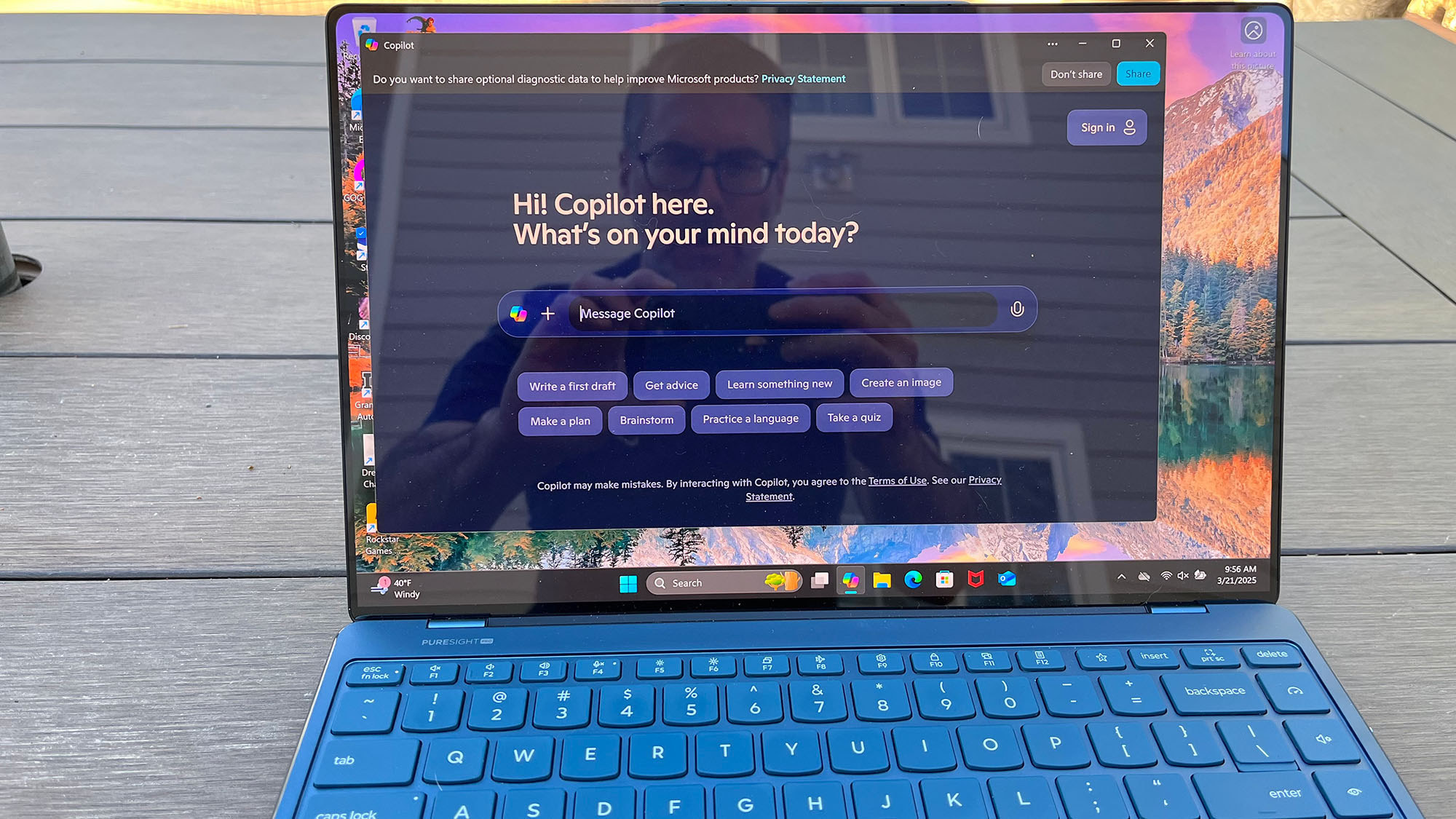Microsoft is again nagging Windows 10 users about upgrading to a Copilot+ PC – but this time with an Arm twist
Windows 11 AI PCs are a "transformative shift", and Microsoft is arguing the case for devices with Arm CPUs

Sign up for breaking news, reviews, opinion, top tech deals, and more.
You are now subscribed
Your newsletter sign-up was successful
- Microsoft is arguing the case for how Arm-based Copilot+ PCs have improved
- It points out that these devices now run the vast majority of software
- There remain weak points, though, notably compatibility with PC games – though work is underway to resolve some of those stumbling blocks
Microsoft suggesting that Windows 10 users buy a new AI PC as an upgrade path to Windows 11 is nothing new – but the company is now pushing Arm-based Copilot+ laptops to the fore.
Windows Latest picked up a new blog post from Microsoft which is all about the "expanding Arm app ecosystem for Copilot+ PCs", and underlining how much software is now natively compatible with those devices as a selling point.
This comes on top of a recent addition to Windows Update for Windows 10 users, in the form of a link that allows them to explore options for trading in or recycling their existing PC, as part of a move to purchase a new Windows 11 device.
As Windows Latest points out, previously this push towards buying a Copilot+ PC was just a general campaign promoting any such machine – whether there's an Arm, AMD or Intel chip inside.
But now Microsoft is giving an extra shove to devices that are Arm-powered, with one of the central arguments here being how much in the way of apps is now catered for with Windows on Arm.
One of the big drawbacks of using an Arm processor has traditionally been the lack of native apps, meaning software written for the architecture (which is different to the x86 apps that run on AMD and Intel CPUs).
As Microsoft makes clear in its blog post, though, Arm support has taken some sizable strides forward, stating that: "With device refresh cycles on the horizon, Windows 10 approaching end of support on Oct. 14, 2025, and AI-powered PCs becoming essential tools for enhancing productivity, consumers and developers alike are excited by the possibilities Copilot+ PCs offer.
Sign up for breaking news, reviews, opinion, top tech deals, and more.
"The Arm app ecosystem continues to expand, with native Arm versions available for apps representing 90% of total user minutes, thus providing efficient, high-performance experiences across the scenarios that matter most to our customers."
So, the central claim here is that Arm is ideal for "high-performance experiences" with the vast majority of apps. Based on Microsoft's data, as of February 2025 (for both Windows 10 and 11 devices), going by the collective usage of apps, 90% of time spent working on those PCs is carried out on apps that have a native Arm version.
That means that most of the time you'll be using native software, and not relying on x86 apps (written for AMD and Intel chips) which need to be run through a translation layer (Microsoft's Prism) to get them to work on an Arm OS – which inevitably comes with a performance overhead.
Analysis: Arm is nearly there now – but not quite

While Microsoft isn't directly pushing Arm-based Copilot+ PCs in Windows 10 – just AI PCs in general with its repeated upgrade nag panels – this blog post shows this is a direction the company wants to explore. And that makes sense, of course, when you consider that Microsoft offers a good selection of Surface devices that have Arm processors (alongside Intel machines, too, it should be noted).
Is the reality of using an Arm-based Windows 11 laptop as rosy as this Microsoft blog post suggests, though? Well, it's certainly true that a lot of progress has been made in terms of app compatibility, as Microsoft points out in detail within said post. In fact, most modern apps now have a native version for Windows on Arm, and odds are you won't run into any problems finding software for an Arm-based Copilot+ PC – though older legacy apps (or more obscure efforts) could still prove troublesome.
The notable sticking point, however, remains gaming – notice that Microsoft's stats concentrate purely on apps, not PC games. For example, want to play Fortnite on an Arm-based PC? Forget it, and ditto for any online game that uses the necessary anti-cheat systems to attempt to keep the player base honest.
So, the answer to whether an Arm-based PC is suitable for your needs really depends on exactly what those needs are. If it's gaming, this is still an Achilles heel for these machines – and it might be for older apps too. But elsewhere, as Microsoft notes, Arm devices are likely to be a good match for your requirements, while offering excellent battery life to boot.
The good news for gamers, though, is that Epic is getting its act together to make Easy Anti-Cheat (EAC) games compatible with Arm, starting with Fortnite. The battle royale should therefore be good to go with Windows on Arm before too long – and depending on how fast other developers are in implementing support, more EAC-toting games should arrive on the platform, too. (That's just one category of games running a specific anti-cheat tool, though).
More broadly, there remain concerns about Microsoft's push to get those on Windows 10 to buy a new Windows 11 PC as an upgrade, in terms of a towering heap of obsolete computers ending up in landfill as a result (maybe hundreds of millions of such devices). This is where that new link in Windows Update to recycling or trade-in options comes into play, of course.
Okay, so yes, Microsoft has provided a free extra year of support for Windows 10 PCs – with a slight catch, as you're likely aware – but as I've argued in the past (alongside others), I think it needs to do more in terms of offering at least an extra year on top of that. I feel that the steep hardware requirements of Windows 11 – necessary for better security among other things in Microsoft's opinion – call for additional action on Microsoft's part here.
You might also like
Darren is a freelancer writing news and features for TechRadar (and occasionally T3) across a broad range of computing topics including CPUs, GPUs, various other hardware, VPNs, antivirus and more. He has written about tech for the best part of three decades, and writes books in his spare time (his debut novel - 'I Know What You Did Last Supper' - was published by Hachette UK in 2013).
You must confirm your public display name before commenting
Please logout and then login again, you will then be prompted to enter your display name.